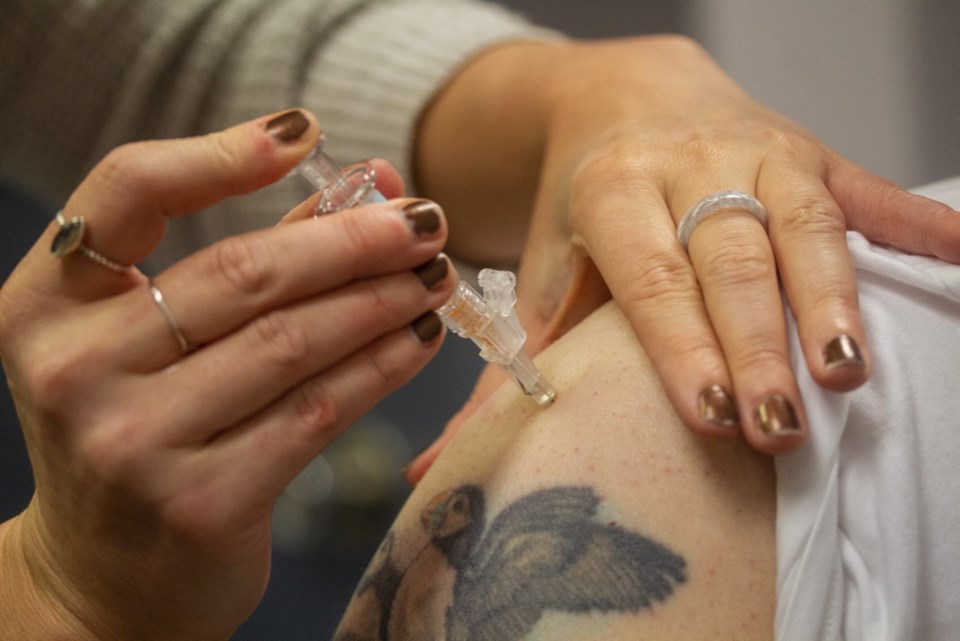Flu season has made its appearance a little earlier than normal this year, so now is the time to get vaccinated, says a medical health officer for Island Health.
Dr. Dee Hoyano said some long-term care facilities in the region have experienced influenza outbreaks.
While the first shipment of the vaccine has arrived, the second has been delayed due to a problem with the manufacturer, Hoyano said, although it’s expected to be ready for distribution in the next few days.
The experts do their best to come up with a vaccine formula that has optimum coverage, she said. “The vaccine always contains an H3 strain as well as an H1N1 strain, and then a B strain.”
The strain seen so far is H3, she said.
While some have pointed to a quick start to the flu season in Australia as an indicator the season here could be harsh, Hoyano disagreed. She said there was significant flu activity in Australia, but it involved different flu strains from those seen here.
Hoyano said it’s too early to say what sort of flu season the capital region will see.
Last year’s flu season was long, extending well into March and April, she noted. “We had one strain that was around at Christmastime and then we had a different strain that was around in the spring.”
Once someone is vaccinated, it takes about two weeks for them to be fully immunized, although the vaccine offers some protection right away, Hoyano said.
Vaccination is particularly advised for those 65 or older, children under the age of five, pregnant women and people with chronic medical conditions.
“We’re really encouraging adults and seniors to go through their family physician or pharmacist, just because we know they often have the most convenient times and can minimize the wait,” Hoyano said.
“The public-health clinics for the most part are focusing on families with young children, and that’s because pharmacists can’t immunize children under five.”
Flu shots are free for those who meet certain criteria, including those 65 and older, those with chronic health conditions, health-care workers, kids under five, pregnant women and anyone who works with small children or the elderly. For others, a flu shot typically costs in the $20-to-$30 range.
Preventive measures against the spread of the flu include regular hand washing, cleaning objects and surfaces that many people touch, coughing or sneezing into your sleeve instead of your hands and staying home when you are sick.



